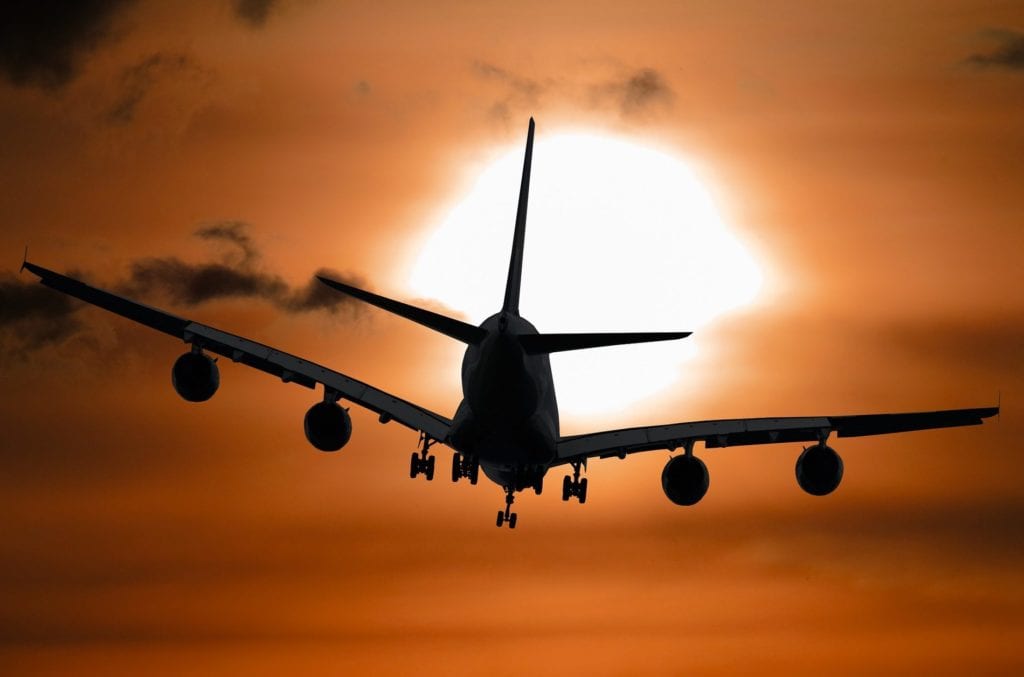What Next? How Brexit May Impact the UK Aviation Industry
Share

APEX Insight: It’s been more than a year and a half since the United Kingdom voted to leave the European Union in the country’s Brexit referendum on June 23, 2016. Airlines are still none the wiser about what their flying rights will be in 12 months’ time once the UK officially exits the EU.
There appears to be confusion about what the United Kingdom’s aviation sector will look like after the country leaves the European Union in March 2019. This is despite the fact that the UK’s government has stated that the country’s aviation industry will not be adversely affected by its withdrawal from the European Union in March 2019.
Blue sky thinking
UK Secretary of State for Transport Chris Grayling stated in October 2017 that “rapid progress” was being made on finding solutions to the existing EU agreement and on forging new and ambitious airline agreements with the US and other international partners in Asia.
Grayling’s optimism is shared by International Airlines Group CEO Willie Walsh. Following a March 6 meeting of European airline bosses in Brussels, Walsh, whose company controls British Airways and Ireland’s Aer Lingus, claimed that he was “completely relaxed” at the prospect of a comprehensive deal being struck by the UK to ensure that airlines operating in and out of the country would not be adversely affected by the aftermath of Brexit. Some of his European counterparts appear less than convinced.
Storms ahead?
Speaking at the same summit of airline leaders, Ryanair CEO Michael O’Leary said there could be a “real crisis” in the aviation industry, both in the UK and Europe, after March 2019. According to O’Leary, if the correct arrangements are not put in place, there is no obvious plan for UK-based airlines to fall back on.
Similar to Ryanair, Lufthansa is pessimistic whether modifications to the Open Skies Agreement can be decided upon before the March 2019 deadline. Lufthansa CEO Carsten Spohr thinks an extended transition period should be agreed upon to allow both the UK and EU time to reach a more palatable agreement. Meanwhile, Airbus, which employs approximately 15,000 people in the UK, warned that it may be forced to move certain manufacturing plants from the UK to other European locations if greater certainty regarding customs-related issues can’t be provided by the UK government in the coming months.
The European Commission also thinks problems may arise if progress is not made soon. Henrik Hololei, the EC’s Director-General for Mobility and Transport, told FlightGlobal that a crisis was not “impossible” to envisage. Despite assurances to the contrary from UK Prime Minister Theresa May, he said it would be impossible for the UK to retain its European Aviation Safety Agency (EASA) status if her government sticks to its current negotiating position. This is because May has repeatedly stated the UK will not accept the supremacy of the European Court of Justice in any future trading relationship – a prerequisite for EASA membership.
It is difficult to envision a situation where the UK could ever be relegated to the role of bystander in the global airline industry.
What’s next?
The UK’s aviation sector contributes $74.5 billion each year to its economy, so it is difficult to envision a situation where the UK is relegated to the role of by-stander in the global airline industry. But much of this revenue is a direct result of the country’s membership in the EU’s single aviation market. The UK’s exit from the EU puts this deal in jeopardy, which could affect the UK’s open skies agreement with the US.
It emerged earlier this month that the US offered the UK a more restrictive open skies agreement than was the case as an EU member. The terms, which state that foreign airlines be majority owned by citizens of the country in which they are based, could affect transatlantic flights operated by companies such as British Airways and Virgin Atlantic, which either have non-UK ownership or are contemplating a sale to citizens of other countries.
Perhaps more promising are recent comments from European Council President Donald Tusk. Last week he said that both negotiating parties need to focus on finalizing an agreement – perhaps similar to the one currently in place between the EU and the US – to avoid an “absurd” flight disruption in 2019.
In the interim, it may be advisable that both the EU and UK look to establish a more elongated transition period – as suggested by Lufthansa CEO Carsten Spohr – to avoid many of the complexities surrounding the overall Brexit process, although this may be difficult to achieve politically.


